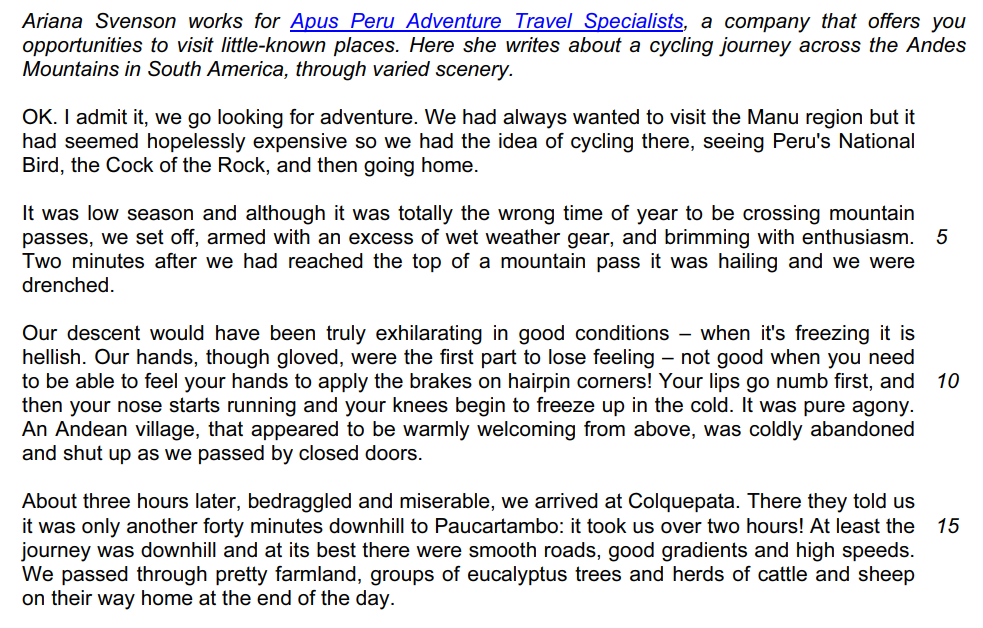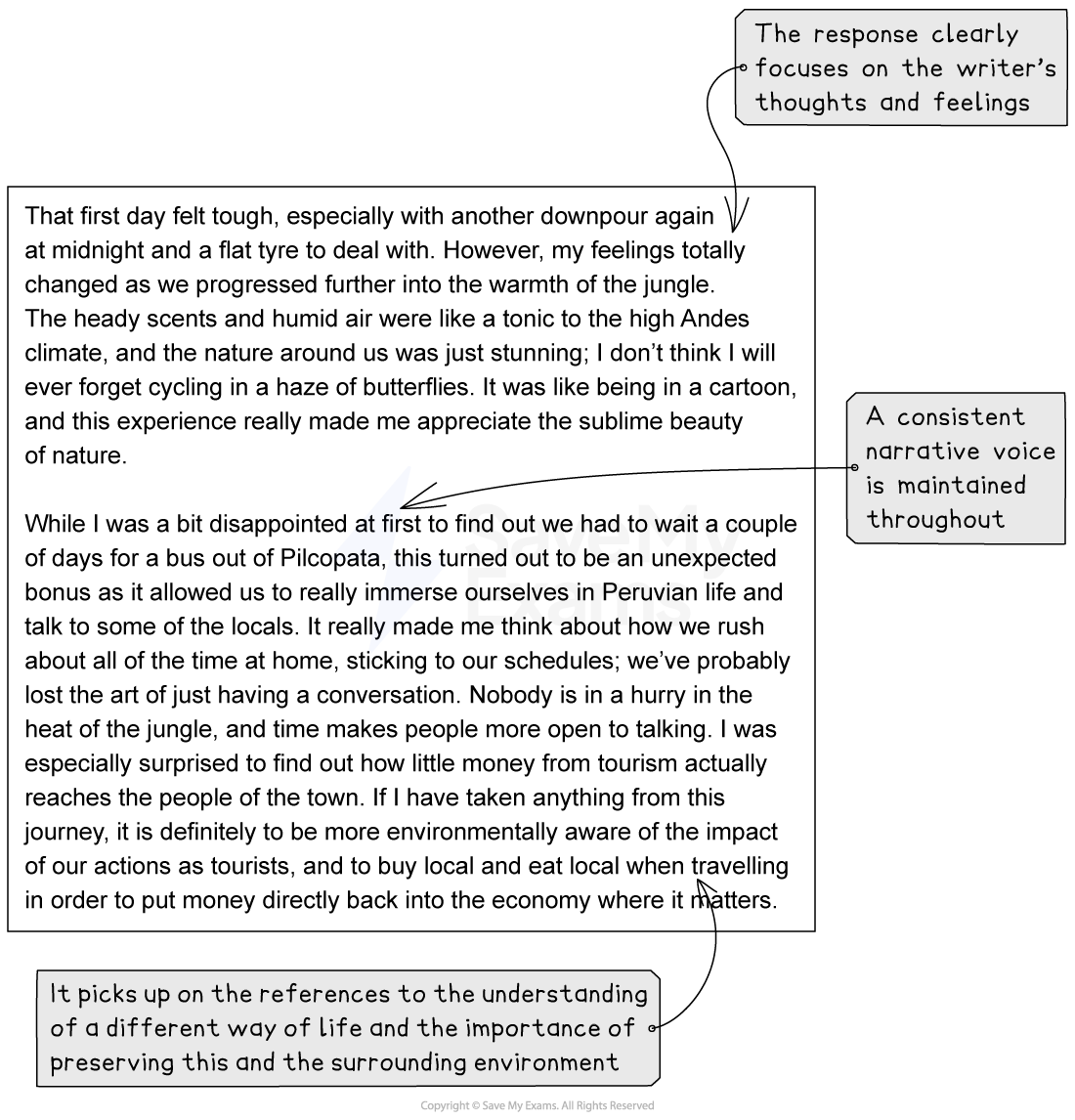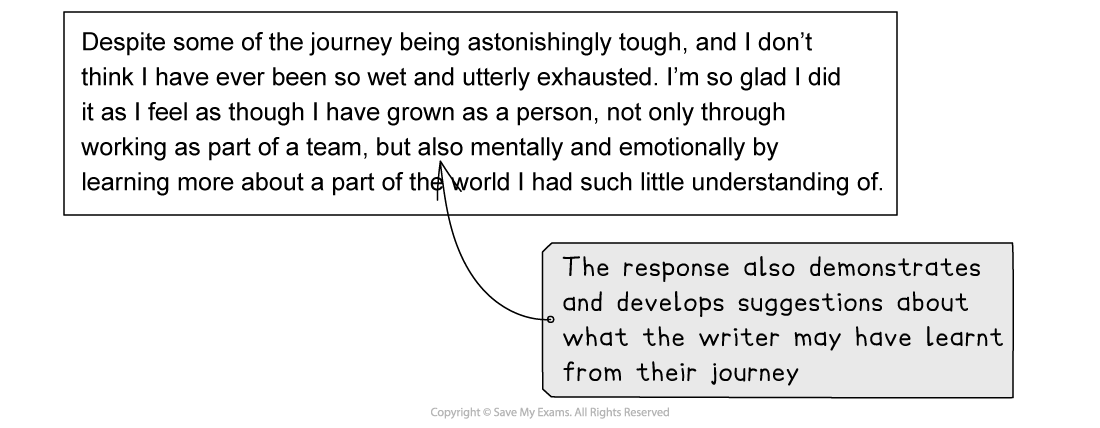|
Model answer:
As we are now well on our way home, I have time to sit and reflect on the adventure we had and what I’ve learnt from the experience. Despite the fact it was low season, we were all so excited to be cycling through what promised to be an incredible landscape, and we felt well prepared with all of our wet weather gear. I quickly realised that this trip was not going to be easy, as we had only just reached the top of a mountain pass when hailstones started falling! I normally love the thrill of a descent after a gruelling climb, but it was so cold I lost the feeling in my hands, which made it really hard to control the bike; the terrain turned into something truly terrifying. I cannot describe how relieved I felt when we finally entered Colquepata and we were told we were only 40 minutes downhill to Paucartambo. It wasn’t 40 minutes; it was over two hours, but at least the roads were smooth and it started to feel fun. I began to get a sense of daily life in this part of Peru as we passed farmland and animals returning home at the end of the day. Paucartambo itself was so picturesque and I started to feel more excited again about what else we would get to see.
That first day felt tough, especially with another downpour again at midnight and a flat tyre to deal with. However, my feelings totally changed as we progressed further into the warmth of the jungle. The heady scents and humid air were like a tonic to the high Andes climate, and the nature around us was just stunning; I don’t think I will ever forget cycling in a haze of butterflies. It was like being in a cartoon, and this experience really made me appreciate the sublime beauty of nature.
While I was a bit disappointed at first to find out we had to wait a couple of days for a bus out of Pilcopata, this turned out to be an unexpected bonus as it allowed us to really immerse ourselves in Peruvian life and talk to some of the locals. It really made me think about how we rush about all of the time at home, sticking to our schedules; we’ve probably lost the art of just having a conversation. Nobody is in a hurry in the heat of the jungle, and time makes people more open to talking. I was especially surprised to find out how little money from tourism actually reaches the people of the town. If I have taken anything from this journey, it is definitely to be more environmentally aware of the impact of our actions as tourists, and to buy local and eat local when travelling in order to put money directly back into the economy where it matters.
Despite some of the journey being astonishingly tough, and I don’t think I have ever been so wet and utterly exhausted. I’m so glad I did it as I feel as though I have grown as a person, not only through working as part of a team, but also mentally and emotionally by learning more about a part of the world I had such little understanding of.
|








